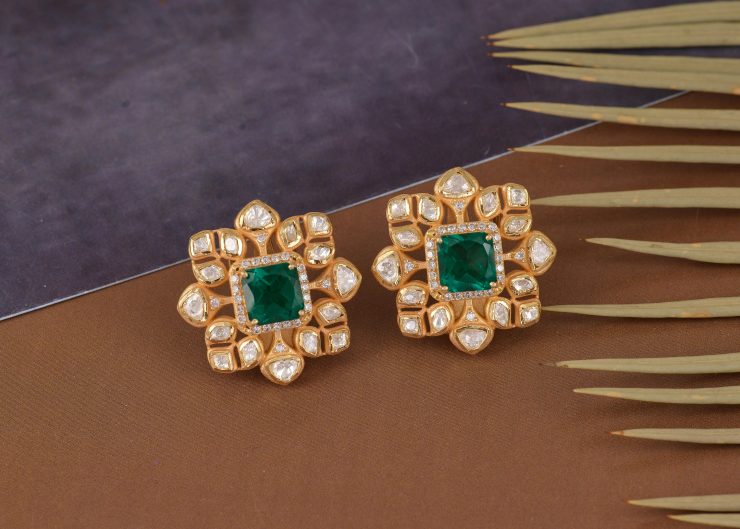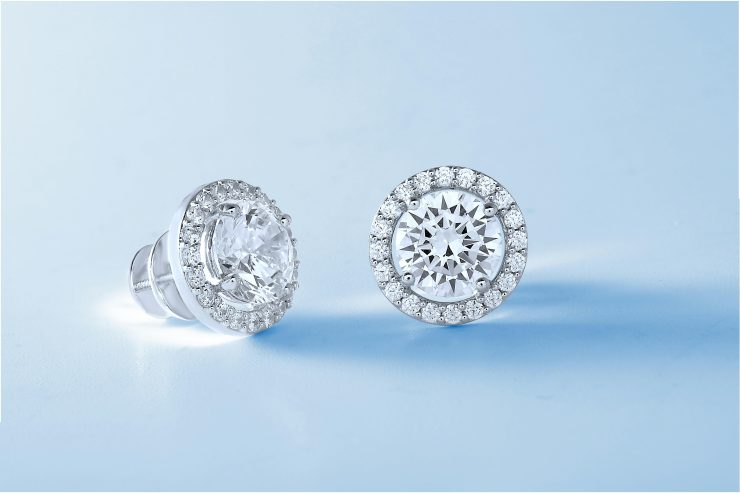Introduction
Selling a diamond is not as simple as walking into a store and walking out with a check. It involves understanding the market, knowing the value of your diamond, and deciding between different types of buyers. Among the most common options are selling to jewelers or to private buyers. Both avenues have their own set of advantages and drawbacks, and the best option depends on several factors such as time constraints, the need for security, and the expected financial return. The resale market for diamonds is inherently different from the retail market; what you paid for the diamond is rarely what you will receive upon resale. Because of this disparity, it’s crucial for sellers to be informed and strategic in choosing how and to whom they sell their diamond.

Selling Diamonds to Jewelers: Pros
One of the most appealing aspects of selling your diamond to a jeweler is convenience. Jewelers are experienced buyers who understand the value of various diamond qualities, including cut, clarity, carat, and color. They can usually provide an immediate appraisal and offer on the spot, which is particularly beneficial for those who need quick liquidity. Many jewelers also handle all aspects of the transaction professionally, including authentication, certification, and documentation, reducing the burden on the seller. Another advantage is the trust factor—established jewelers are often members of trade associations and have reputations to uphold. This makes the transaction more secure and less risky compared to dealing with anonymous individuals online. Jewelers may also be more willing to purchase diamonds with official certifications, such as GIA or AGS grading reports, and they typically have the knowledge to appraise both modern and antique stones accurately.
Selling Diamonds to Jewelers: Cons
However, selling to a jeweler is not without its drawbacks. One of the biggest cons is the resale price offered. Jewelers are businesses, which means they need to make a profit on any diamond they purchase. As a result, the offer you receive will usually be significantly lower than the diamond’s retail price, and often lower than what you might get from a private buyer. In many cases, jewelers will offer only a fraction of the market value, especially if the stone lacks certification or if it’s in a less desirable cut or quality range. Furthermore, some jewelers may not be interested in purchasing diamonds at all, particularly if they already have sufficient inventory or if the diamond does not fit their clientele’s preferences. This can limit your options and waste your time. Additionally, because jewelers often need to resell your diamond to a new customer or wholesale market, their margin requirement can drastically reduce your net proceeds from the sale.
Selling Diamonds to Private Buyers: Pros
Selling to a private buyer can often yield a higher return than selling to a jeweler. Because private buyers are usually purchasing for personal use rather than for resale, they may be willing to pay closer to the market value, especially for high-quality or unique stones. Online marketplaces, social media, auction websites, and diamond-specific platforms like I Do Now I Don’t, Worthy, or even eBay and Facebook Marketplace can help connect sellers directly with interested buyers. This direct connection allows for negotiation, and in some cases, the emotional appeal of a diamond’s history or sentimental value can help drive up the price. Moreover, private sales can allow you more control over the terms of the sale, including the timing, payment method, and even meeting location. For sellers who are not in a rush and are comfortable navigating sales themselves, the private route can be financially rewarding and personally satisfying.
Selling Diamonds to Private Buyers: Cons
Despite the potential for higher payouts, selling diamonds to private buyers carries a unique set of risks and challenges. First and foremost is the issue of safety and fraud. Meeting a stranger to conduct a high-value transaction inherently involves personal risk. Even when using reputable online platforms, there’s the danger of payment fraud, counterfeit cashier’s checks, or identity scams. Furthermore, private buyers often lack professional knowledge about diamonds, which can complicate negotiations or lead to disputes over the value of the stone. Without a certificate from a recognized gemological lab like GIA or AGS, convincing a private buyer of a diamond’s authenticity and quality can be difficult. The sales process is usually longer as well, requiring marketing, communication, and patience. Sellers must often create detailed listings, take professional-quality photos, respond to numerous inquiries, and vet potential buyers. This time-consuming process may not be suitable for individuals looking for a quick and hassle-free sale.

Comparative Analysis: Convenience vs. Profitability
When deciding between selling to jewelers or private buyers, one of the most prominent trade-offs is convenience versus profitability. Selling to a jeweler offers a streamlined, secure process with immediate results, which is ideal for those in urgent need of liquidity or unwilling to navigate the complications of private sales. On the other hand, private buyers offer the opportunity to command a better price, especially if you’re willing to invest time and effort into the process. Sellers should weigh their personal priorities: is it more important to maximize the return, or to ensure a smooth, rapid transaction? It’s also important to note that a high-end or branded diamond piece (such as those from Tiffany & Co. or Cartier) might fetch better prices on the private market where buyers are willing to pay a premium for the brand—something jewelers are less likely to factor into their offers. Therefore, assessing the nature and uniqueness of your diamond is key when choosing your selling route.
Security and Fraud Prevention Considerations
Security is a critical component in any diamond sale, but the level of risk varies significantly depending on the buyer. Established jewelers typically have physical storefronts, transaction protocols, and insurance that minimize the chances of fraud. Their professional standing often requires a level of transparency and accountability, offering peace of mind to the seller. Conversely, selling to a private buyer—especially through online or informal channels—can be fraught with potential scams. It’s not uncommon for fraudulent buyers to use fake payment confirmations, counterfeit checks, or stolen identities. To mitigate these risks, private sellers must insist on verified payment methods, conduct transactions in secure public locations (such as bank lobbies or jewelry stores), and ideally use escrow services for higher-value items. Additionally, sellers should be wary of “too good to be true” offers, especially from international buyers, which often signal scam operations. Sellers inexperienced in such transactions may find the risk-reward ratio too steep when dealing with private buyers.
Legal and Documentation Requirements
Proper documentation is essential regardless of whom you sell your diamond to, but it becomes even more critical in private transactions. When selling to a jeweler, the buyer usually has the expertise to assess a diamond’s value even without formal documentation, although having a grading certificate from the GIA (Gemological Institute of America), IGI (International Gemological Institute), or AGS (American Gem Society) significantly strengthens your position. Jewelers often provide their own paperwork and can assist with legal formalities. However, private buyers may demand certification to ensure authenticity and avoid overpaying for misrepresented stones. Without this documentation, sellers risk losing credibility, reducing potential offers, or even scaring away buyers altogether. Additionally, transferring ownership in private sales may require bills of sale or other forms of proof, especially for higher-value transactions. In some jurisdictions, sellers may even need to report such transactions for tax purposes. Therefore, ensuring you have all the proper paperwork—appraisals, certificates, receipts, and identification—can be crucial to a smooth, legal, and profitable sale.
Time Investment and Effort Required
Another key difference between the two selling options is the amount of time and effort involved. Selling to a jeweler is typically a one-and-done transaction. It might take a few consultations to get the best offer, but overall, the process is much faster and less labor-intensive. On the contrary, private selling can be a drawn-out affair. Crafting compelling listings, taking high-quality photographs, fielding inquiries, negotiating prices, arranging meetings, and ensuring safe payment are all time-consuming tasks. Moreover, competition on online platforms is stiff, and diamonds without strong selling points (like premium cut or branded settings) may sit unsold for weeks or months. Sellers need to be prepared for the possibility that multiple showings may not lead to a sale, and that potential buyers may attempt to lowball or back out entirely. This extended timeline can be frustrating and draining, particularly for those who are not used to sales or lack negotiation skills. Therefore, sellers should realistically evaluate whether they have the patience and resources for a longer-term sales strategy.
Final Thoughts and Recommendations
In the end, the choice between selling a diamond to a jeweler or a private buyer boils down to individual priorities and circumstances. If speed, safety, and simplicity are paramount, then a reputable jeweler is the better choice, even if it means accepting a lower price. However, if you have a high-value stone, a strong certificate, and the time and confidence to handle the process, selling to a private buyer can result in a significantly better return. It’s also worth considering a hybrid approach—getting offers from jewelers first to set a baseline, then trying the private market to see if better opportunities arise. Sellers should also take advantage of online appraisal tools and professional consultations to gain a realistic understanding of their diamond’s value before entering the market. Regardless of the route chosen, preparation, patience, and prudence will go a long way in ensuring a successful sale. A well-informed seller is more likely to not only close the deal but do so on favorable terms.